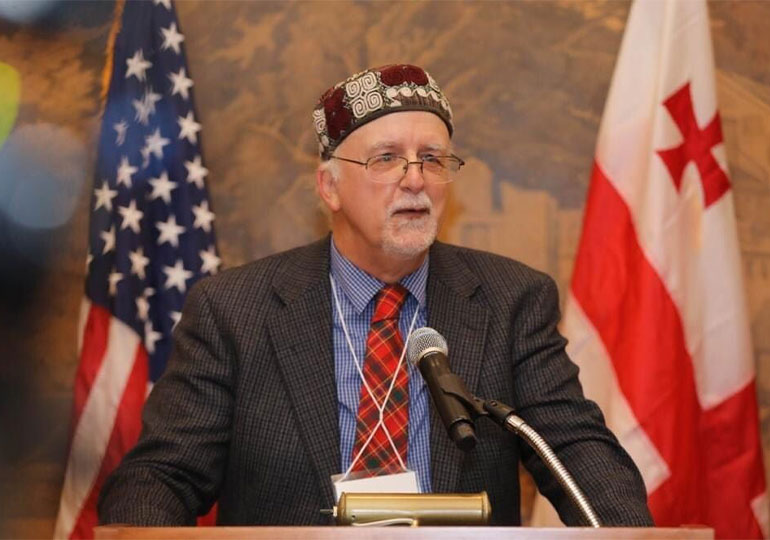One year after the World Health Organization declared the Covid-19 outbreak a global pandemic on March 11, the “new normal” is a reality that has affected nearly every aspect of our daily lives.
It’s hardly business as usual. Though this new world has been marked by loss and anxiety, it has also spurred extraordinary innovation and stunning resilience.
These agents of hope and change include some of the world’s top business minds, whose purpose and pivots, products and digital platforms have moved markets, shaped history and kept people’s lives—their health, jobs, meals and sanity—whole in ways that will undoubtedly ripple into the future.
Forbes profiled these leaders and pioneers over the course of this remarkable year. Below is a sample of those who reinvented the world when we needed it most.
Albert Bourla: The $1 Billion Shot Of Hope
By Nathan Vardi | May 2020
Two months into the pandemic, 5 million cases made it clear that the virus was spreading exponentially, and the best way to contain the pandemic was a vaccine. Which raised the question: How fast can the world get one? Pfizer’s CEO, Albert Bourla, a 25-year veteran of the company, was determined to deliver an answer—in a glass vial. Bourla told Forbes in May that Pfizer was willing to spend $1 billion in 2020 to develop and manufacture the vaccine before they knew if it would even work: “Speed is of paramount importance.” Only seven months later, the bet paid off as Pfizer’s vaccine was issued emergency use approval in the U.K, followed by Canada and the U.S.
By Leah Rosenbaum | May 2020
The billionaire CEO of Moderna, Stéphane Bancel, 47, also worked lightning fast to deliver an approved Covid-19 vaccine. “Every day we’re losing lives; we really believe that every day matters,” Bancel told Forbes. Vaccines typically take years (or in some cases, decades) to develop, but on January 11, 2020, the Cambridge, Massachusetts-based Moderna team had a vaccine design ready. In early March, its mRNA vaccine was injected into humans for the first time in its phase 1 clinical trial. Nine months later, the Food and Drug Administration announced Emergency Use Authorization for the company’s vaccine, making it the second to be authorized in the U.S.
Eric Yuan: A New Virtual Reality
By Alex Konrad | April 2020
As the world hunkered down and settled into what would be a much longer-than-expected life from home, Zoom emerged as one of the leading tools to keep businesses afloat, students in school and friends and family connected through virtual happy hours, book clubs and birthdays. On April 1, Zoom said it had reached 200 million daily users in March, up 20x from its 2019 best, catapulting the videoconferencing platform’s CEO and founder, Eric Yuan, 51, to one of the richest self-made newcomers on Forbes 2020 Billionaires list.
Vladimir Tenev & Baiju Bhatt: Spurring An Army Of Market Movers
By Jeff Kauflin, Antoine Gara and Sergei Klebnikov | August 2020
As the stock market thrashed about under the pressure of the pandemic, millions of novices took to Robinhood, a gamified stock-trading app, to get in on the action. Billionaire cofounders of the platform, Vlad Tenev, 34, and Baiju Bhatt, 36, promised to “democratize finance for all” but spurred controversy. Not only were they getting rich by selling customer trades to the market’s biggest sharks, but Robinhood also restricted trading to various “meme stocks” last month.
Apoorva Mehta: Essential Delivery
By Chloe Sorvino | January 2021
The pandemic transformed Instacart, one of the country’s leading grocery delivery services, from an app that was gaining momentum into an essential and highly profitable business with partners such as Costco, Wegmans and Eataly—as well as your neighborhood market. Apoorva Mehta, 34, the nine-year-old company’s billionaire CEO and founder, told Forbes that Instacart “saw five years of growth in a matter of five weeks,” due to the coronavirus. It is now valued at $39 billion.
Reed Hastings: Keeping The World Entertained
By Dawn Chmielewski | September 2020
The pandemic wreaked havoc on legacy entertainment companies, with Disney shuttering its theme parks, Warner Bros. delaying major film releases and AMC turning out its theaters’ lights. But Netflix thrived. Led by billionaire cofounder and co-CEO Reed Hastings, 60, Netflix added almost as many customers in the first six months of 2020 as in all of 2019, and surpassed a record 204 million subscribers worldwide by year’s end. The streaming giant received more Oscar nods than any other Hollywood studio and has a current market cap of $233.6 billion.
Brynn Putnam: Reflecting The At-Home Fitness Surge
By Amy Feldman | May 2020
With public gyms becoming hotbeds of contagion, the at-home fitness sector experienced a heart-pounding rise. Hot on Peloton’s heels, Brynn Putnam, 36, the CEO and founder of Mirror, made exorbitant gains with her sleek workout platform surging past $100 million in 2020 revenue. “We’re seeing Christmas in April,” the former ballerina told Forbes, noting members were working out an average 15 times a month, up from a prepandemic 10. The product looks and functions like a real mirror, but turn it on and users see an instructor teaching a variety of workout classes from yoga to boxing. In June Mirror agreed to sell to Lululemon for $500 million.
Todd McKinnon: Security Tsunami
By Noah Kirsch | August 2020
The rise of work-from-home as a result of the pandemic made Todd McKinnon, the cofounder and CEO of Okta, a freshly minted billionaire in 2020. Okta helps organizations verify the identities of employees and users by sending a custom code to their cell phones, among other cybersecurity measures. The company now counts FedEx, MGM, LVMH, Equifax, Western Union and dozens more (including Forbes) as clients. “It’s like a tsunami that’s coming,” said McKinnon, 49, of the massive influx of new business.
Cathie Wood: Outsmarting A Chorus Of Critics
By Antoine Gara | October 2020
Founder and CEO of Ark Investment Management Cathie Wood enjoyed proving her critics wrong in 2020. “It almost makes me feel comfortable, to be honest,” she told Forbes, “because it means if we’re right, then the rewards will be pretty enormous.” Enormous they were. With the company betting on Tesla and a pandemic that accelerated adoption of the technologies embedded in the companies within each Ark ETF (such as Square and Zillow) helped its assets nearly triple to a whopping $29 billion. “Coronavirus has catapulted our innovative platforms into high gear because they solve problems,” Wood, 64, said. “Innovation solves problems.”
Sid Sijbrandij: Spreading The Gospel Of Remote Work
By Alex Konrad | November 2020
Companies forced to migrate to virtual offices pushed even more development to the cloud, equating to booming business for Sid Sijbrandij, 41, the CEO and cofounder of GitLab. The company, which provides a suite of software tools that help developers build, manage and secure their apps (including Wag, Wish and Ticketmaster), was an early adopter of remote work prepandemic, an ethos that allowed the company to reach a $2.8 billion valuation in 2019 and jump to a $6 billion valuation in 2020. “I thought we would spend the next ten years convincing the world how to do remote better,” Sijbrandij told Forbes. “Instead, Covid did it within months.”
See More: Billionaire Winners And Losers From The Pandemic
By Ariel Shapiro | December 2020
More than 60% of the world’s 2,200-plus billionaires grew richer by the end of 2020. This includes the world’s richest, Jeff Bezos, CEO and founder of Amazon, whose business turned essential when shelter-in-place orders took effect. Dan Gilbert, who cofounded online mortgage lender Quicken Loans, benefited from a massive IPO this year, and Elon Musk’s fortune soared when Tesla stock increased sevenfold over the course of 2020.










